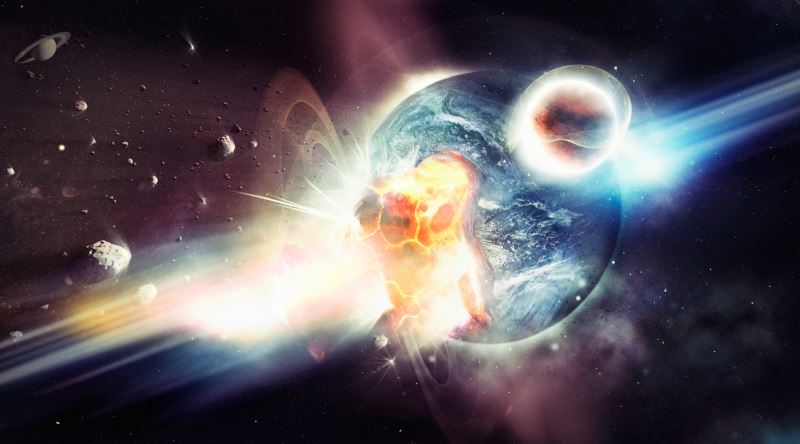The Big Bang Theory suggests that the universe expanded rapidly from a single, undefined point approximately 13.8 billion years ago and took its current form. But what about before that?
With the Big Bang, predictability ceases.
Similarly, just as we only know what happened after the Big Bang, we cannot determine what happened before it.
The current leading thought in the history of science is that what happened before the Big Bang has no consequence. Therefore, it cannot be part of the scientific model of the universe. For this reason, we can exclude the period before the Big Bang from the model and state that the beginning of time is the Big Bang.
This means that questions like “Who prepared the conditions for the Big Bang?” are not the kind of questions that science deals with.

According to the standard theory, our universe emerged as a “singularity” 13.7 billion years ago.
What is a “singularity,” and where does it come from? To be honest, we don’t know for sure. Singularities challenge our current understanding of physics. They are thought to exist at the centers of “black holes.“
Black holes are regions of intense gravitational pressure. They are places where finite matter is crushed under infinite density. These regions of infinite density are called “singularities.”
Our universe is thought to have started as a small, infinitely hot, infinitely dense “something”—a singularity.
Where did it come from? We don’t know. Why did it emerge? We don’t know.
Einstein’s equations, which suggest there is a certain amount of matter in the universe, share a very important feature in all their solutions: at some point in the past (approximately 13.8 billion years ago), the distance between neighboring galaxies must have been zero. In other words, the entire universe was compressed into a single point of zero size—a sphere with a zero radius. At that time, the density of the universe must have been infinite. This is the moment we call the Big Bang (infinite density).
Time is a byproduct of the universe (or a system composed of universes).
Because we observe time always flowing forward, we naturally assume that it must be able to flow backward as well. After all, our memories are always about the past.
Thus, we are used to thinking of time on a forward-backward axis. However, it is necessary to imagine time as a sphere. For example, if we move south from a point on the Earth’s surface, we move away from the north, and eventually, when we reach the southernmost point, there is no more south to go. From this starting point, we can set off again in any direction we choose.
If we imagine the Big Bang as the starting point, that is, the southern point, then the question of “what was before” loses its meaning.